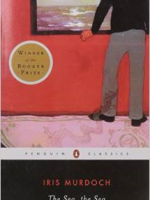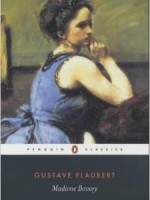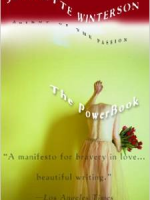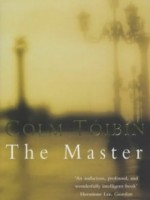(Published by Virago Press)
 |
Set in London during the late eighteenth century and with the French Revolution as its bloody and passionate backdrop, Life Mask tells the tale of three women caught in a kind of love triangle.
Donoghue’s fourth novel is formed around a fictional recreation of the relationships between a group of real-life historical figures. Eliza Farren is a Drury Lane actress whose virtue is her most prized possession. Her long-running relationship with the twelfth Earl of Derby has never progressed beyond conversation and the occasional hand-touching as it is always played out under the watchful eye of her mother. Derby is a married man, although estranged from his wife, and this chaperoning is a situation devised (as much by Eliza as by her mother) to keep Eliza’s reputation intact. Anne Damer is a successful sculptor who meets and befriends Eliza. She is unable, or unwilling, to acknowledge that she has lesbian feelings towards Eliza, despite the obvious warning signals, and here the story takes off.
My biggest problem with this novel is that it sets itself up to be something it is not. Its main focus is on something that does not really unfold until almost the very end of the book: Anne Damer’s realisation of her lesbian side. Not to be crude, but the result is like a whole lot of foreplay without any action; and when the action comes, although Donoghue handles it masterfully, there aren’t enough pages left in which to savour it.
Padded out with details of real life events, parliamentary debates, etc, this is historical fiction in which the fiction is constantly in danger of drowning in the history. Much of it is interesting, and certainly tied to the lives of the main characters, but it is never as interesting as the interpersonal relationships Donoghue is so good at creating.
She is at her best when bringing to life the friendships of the women, somewhere beyond the realm of real-life politics, but it takes a long time to really get to know either Anne or Eliza, which left me fairly indifferent to their fate for at least the first half of the book.
Perhaps the choice of this structure is an attempt on Donoghue’s part to downplay the lesbian theme of the book, but the problem does not lie in a lack of action in terms of passion; it lies in the fact that a potentially interesting plot constantly gets dragged down by the historical events that surround it.
This is a fascinating story about fascinating women during a fascinating period in history, but it doesn’t add up to the sum of its parts. Readers expecting the page-turning excitement of Slammerkin, will certainly be disappointed.
Donoghue certainly warms up towards the end, and the last quarter of the book is excellent. The problem is many readers will have lost interest long before they get there. ![]()
An interview with Emma Donoghue



